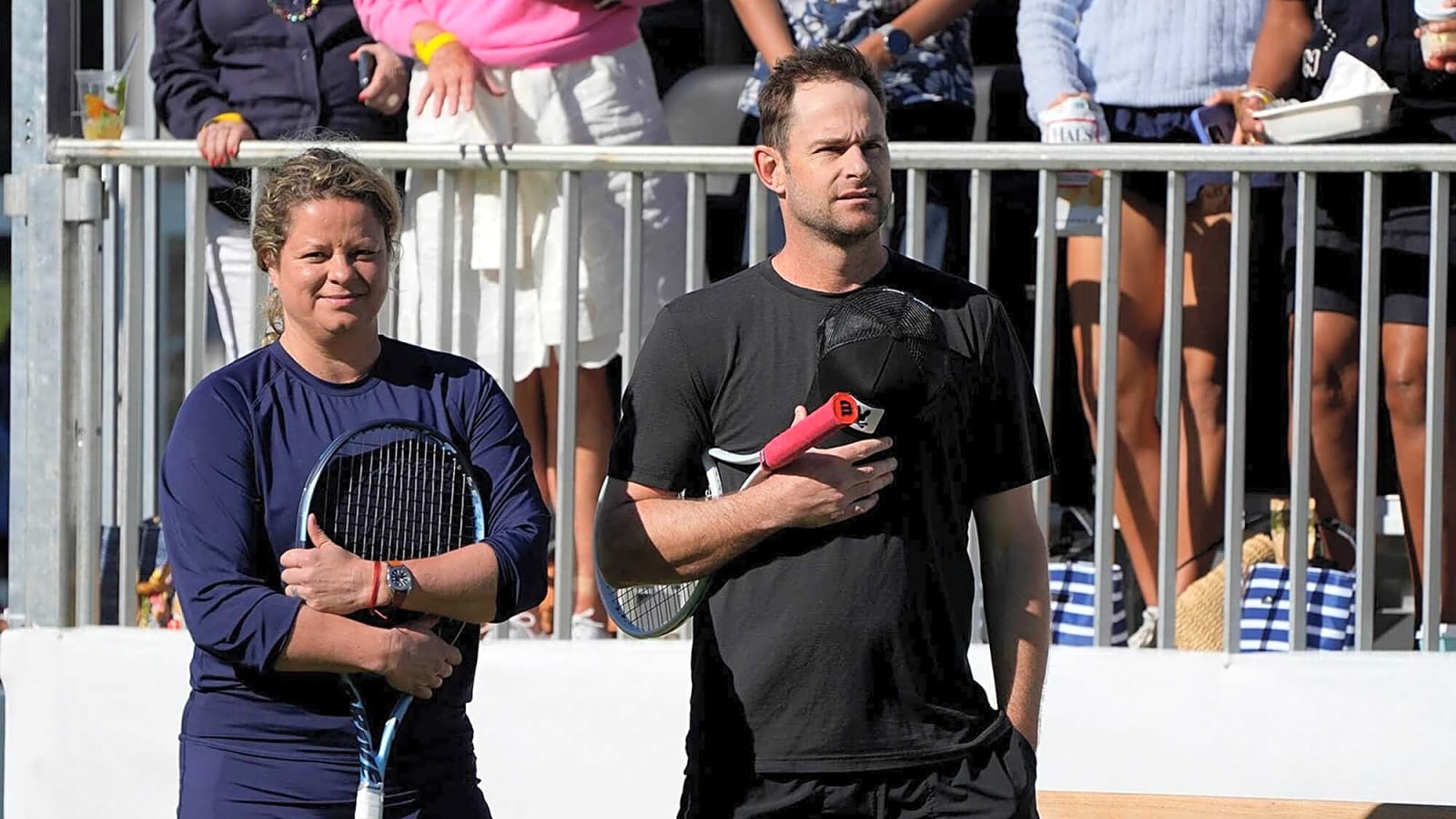
Somewhere in Spain, Carlos Alcaraz can finally stretch out and breathe easy, his decision to skip Shanghai now looking masterful. While the World No. 1 enjoys calm after his Japan Open triumph, chaos reigns in China, where “brutal” heat and humidity have ripped the draw apart. Jannik Sinner fell victim, retiring with painful cramp against Tallon Griekspoor, as the heat crisis spirals and the schedule’s madness takes center stage. Players suffer, fans endure, and frustration simmers. Andy Roddick now slammed the scheduling mess, echoing a growing sentiment that the sport’s rhythm is cracking under its own relentless grind.
Andy Roddick rarely pulls his punches, and this week, he let loose. On a new episode of his Served podcast, the former World No. 1 took direct aim at what he calls tennis’s “broken rhythm.” “This schedule continues to suck,” Roddick began, his tone cutting through the noise. “It has sucked. It’s only getting worse.” His frustration was palpable, the words of a man who’s been there, who’s felt the grind, lived the exhaustion, and now watches another generation break under the same weight.
Then came the question that stung deeper than any serve. “And who pays the bill?” he asked, before answering himself. “The fans a lot of the time. Like the players do for sure. For sure.” Roddick’s critique wasn’t just about player fatigue; it was about a sport losing its balance. He pointed out the impossible expectations placed on stars like Carlos Alcaraz and Jannik Sinner, both of whom are now sidelined. “Some people are mad that you know, Alcaraz isn’t playing. Sinner withdrew. It’s not that it’s not on them. Like you can’t do it all the time,” he said, before taking a direct shot at the calendar itself.
“January 1st through the end of November for years in a row. You just can’t do it. It’s too much of an ask. Something’s got to give,” Roddick continued. Then came the kicker, his verdict on the ongoing Shanghai Masters. “It’s given this week in Shanghai. No Alcaraz, no Sinner, opportunity knocking.” His words echoed like an alarm bell, underlining what many inside the locker room have whispered for months: tennis is playing too much tennis.
Alcaraz, fresh off his Japan Open title, and Sinner, who lifted the China Open trophy just a day later, were supposed to headline Shanghai. As top seeds, they received byes into the second round, but the relentless overlap between tournaments proved unforgiving. The new 12-day Masters events, designed to stretch the calendar and attract more fans, have instead stretched players thin. Each week blends into the next, with no time for bodies or minds to recover.
The women’s tour tells a similar story. Daria Kasatkina, ranked World No. 19, recently declared her season over. “The truth is, I’ve hit a wall and can’t continue,” she wrote on Instagram. “I need a break. A break from the monotonous daily grind of life on the tour, the suitcases, the results, the pressure, the same faces (sorry, girls), everything that comes with this life.” Her honesty struck a chord across both tours.
Kasatkina’s message echoed the growing discontent among her peers. “The schedule is too much, mentally and emotionally I am at breaking point and sadly, I am not alone,” she added. Elina Svitolina and Beatriz Haddad Maia have already ended their seasons early, while Iga Swiatek and Coco Gauff have both questioned the calendar’s intensity.
As the Shanghai Masters continues under sweltering, punishing conditions, the sport finds itself at a crossroads, where the heat is not just in the air, but in the conversation itself.
Holger Rune urges ATP action amid Shanghai heat
The Shanghai Masters is turning into a trial by fire. Temperatures soared past 30°C, humidity climbed above 80%, and one by one, players began succumbing to the punishing conditions. Holger Rune, still standing in the quarterfinals, spoke out after his win over Perricard yesterday. “Yes, I think there should be a rule regarding the heat, like there is in the Grand Slam tournaments. I think all the players would agree on that. Today was better, as you say, it was less hot. But again, it was less hot, but if the temperature had been more normal, it would have been very hot today.”
The ATP currently lacks a formal heat policy, leaving extreme weather decisions to on-site supervisors working with medical teams and local officials. By contrast, the WTA Tour has clear rules, pausing matches when temperatures spike or humidity climbs. At the Wuhan Open, all outdoor courts were halted for hours until conditions eased. Rune wants the men’s tour to adopt a similar safety net, recognizing that the physical toll on players is reaching dangerous levels.
“I think it was around 31 degrees and the humidity was very high. But compared to other days, it was quite brutal,” Rune added, underscoring just how punishing the environment has been.
With the calendar already stretched and scheduling chaos compounding fatigue, the conversation around player safety is intensifying. Voices like Rune’s are pushing the ATP to rethink its approach, not next season, but now.
Change may not come overnight, but the hope remains. Players are exhausted, fans are watching, and the Shanghai Masters shows that heat, like time, waits for no one.
The question lingers: will the tour act before it’s too late?
More must-reads:
- Former NBA champion calls for LeBron James to retire after this season
- Giants QB Jaxson Dart joins unexpected company after his first three starts
- The 'Team USA men's basketball coaches' quiz
Breaking News
Trending News
Customize Your Newsletter
 +
+
Get the latest news and rumors, customized to your favorite sports and teams. Emailed daily. Always free!








